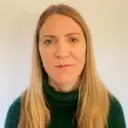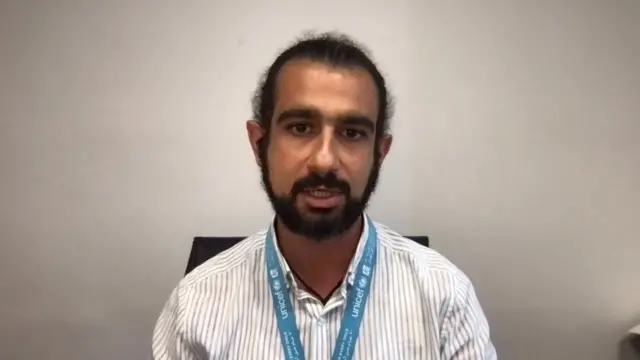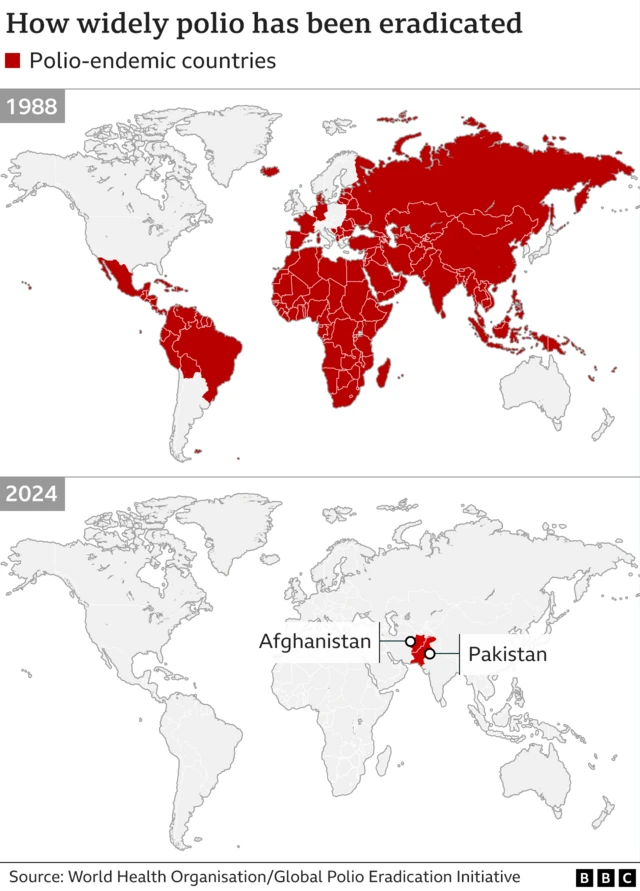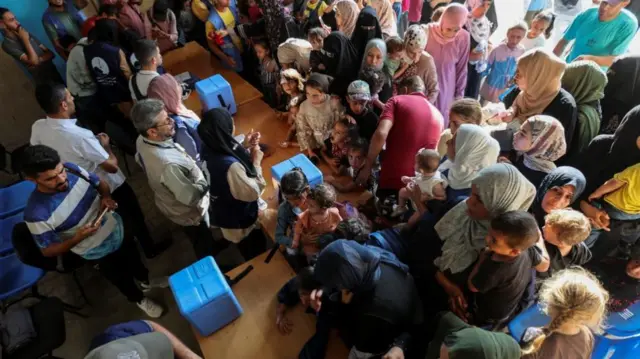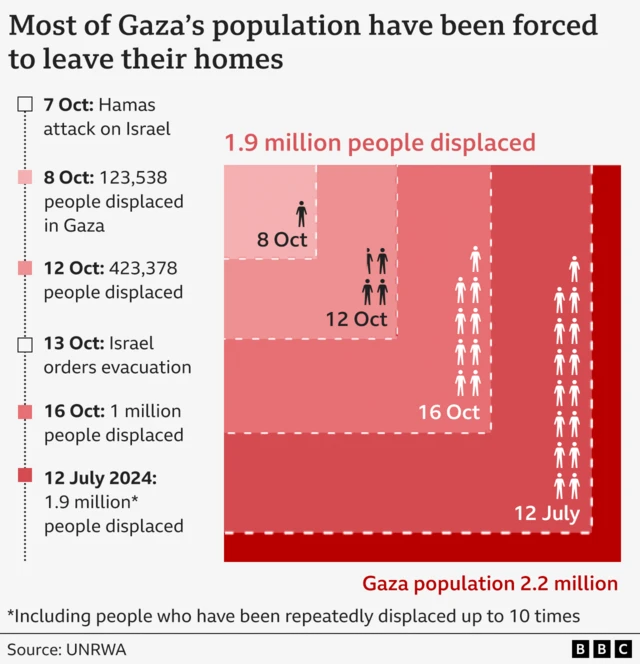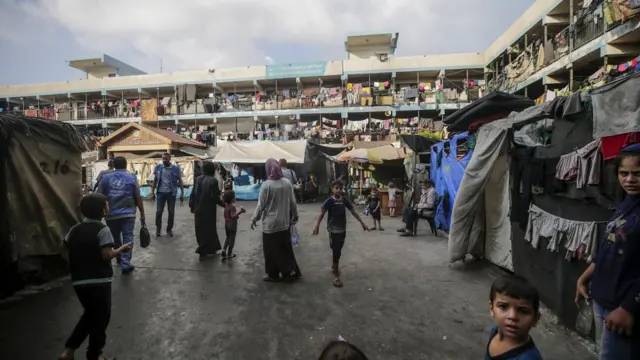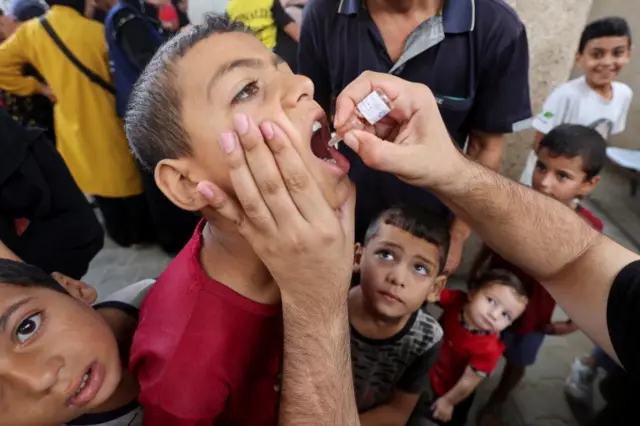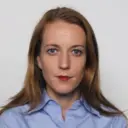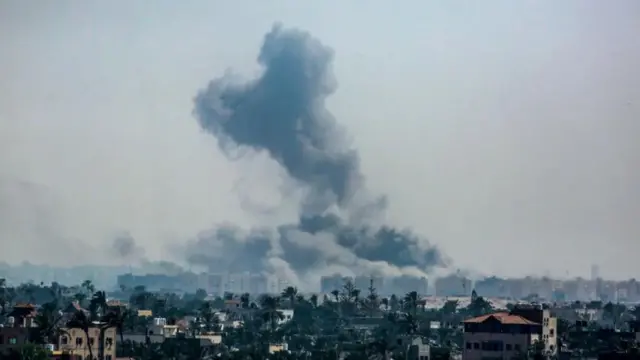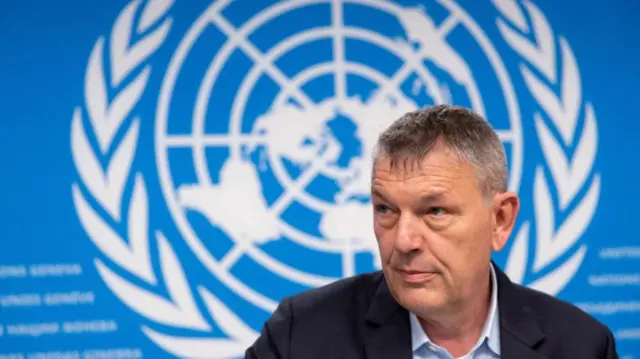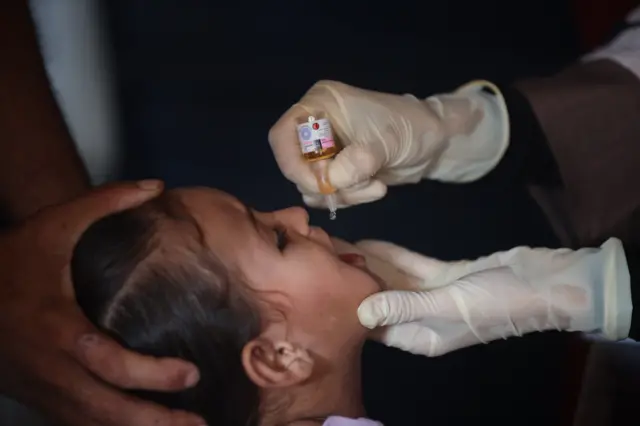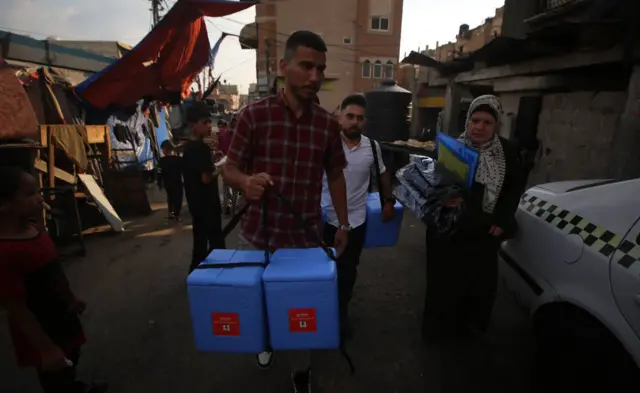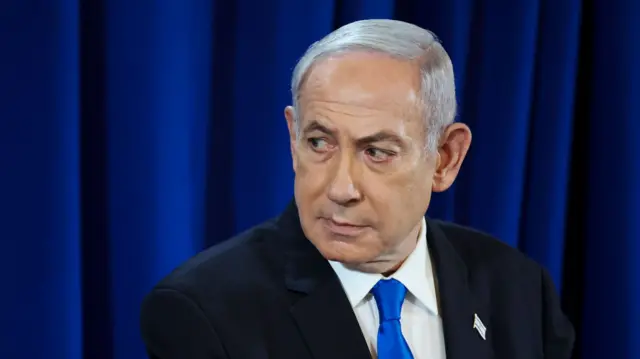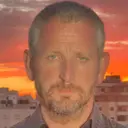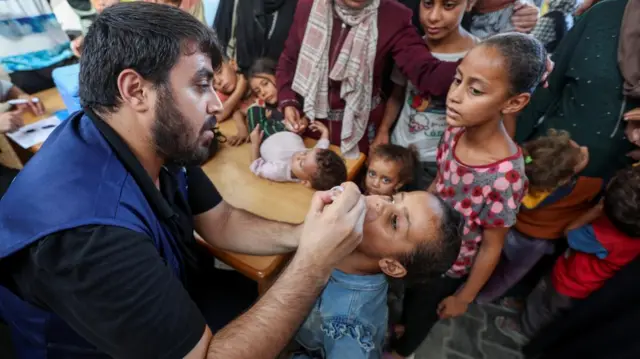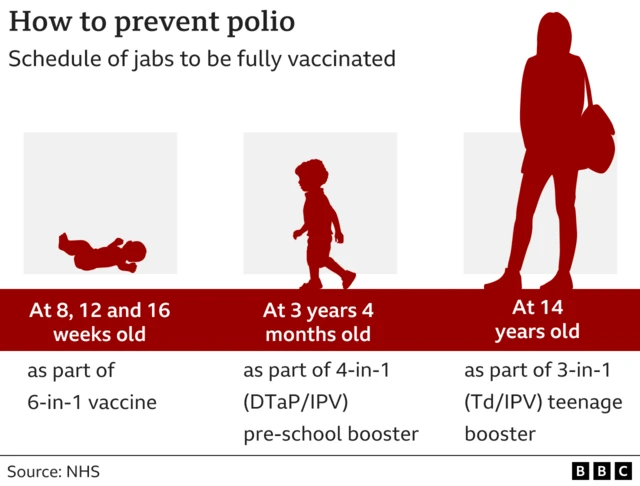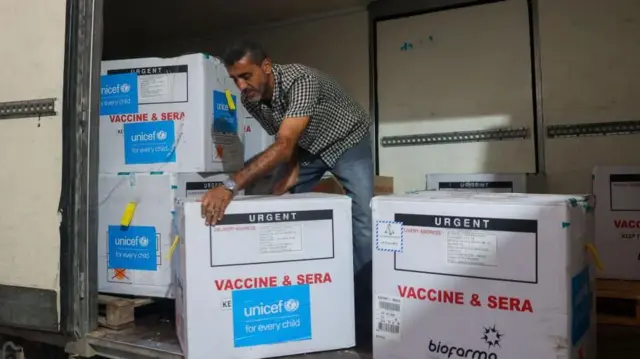Israeli opposition leader calls for 'general strike'published at 14:19 BST 1 September 2024
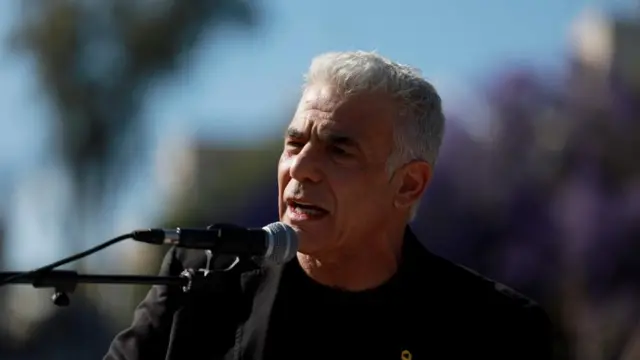 Image source, Reuters
Image source, ReutersIsraeli opposition leader Yair Lapid has called for people to gather this evening and join a "general strike" to put renewed pressure on the government to agree to a ceasefire deal and the release of the remaining hostages in Gaza.
Big protests are due to be held across the country to demand immediate action from Prime Minister Benjamin Netanyahu after the bodies of six hostages were recovered from inside a tunnel in Gaza on Saturday.
Lapid calls on every citizen "whose heart was broke this morning" to join in the demonstrations, as he singles out employers, local authorities and the Histadrut (union) to "shut down the economy".
